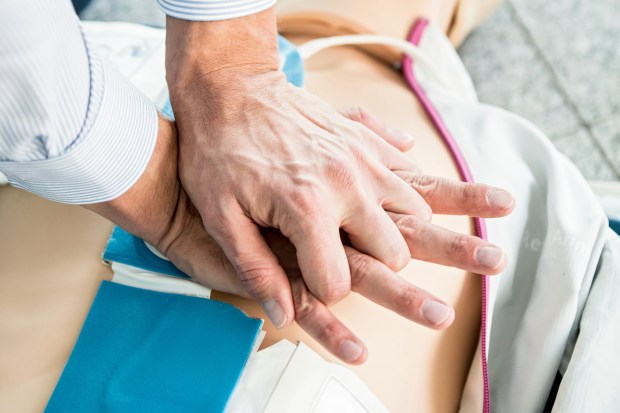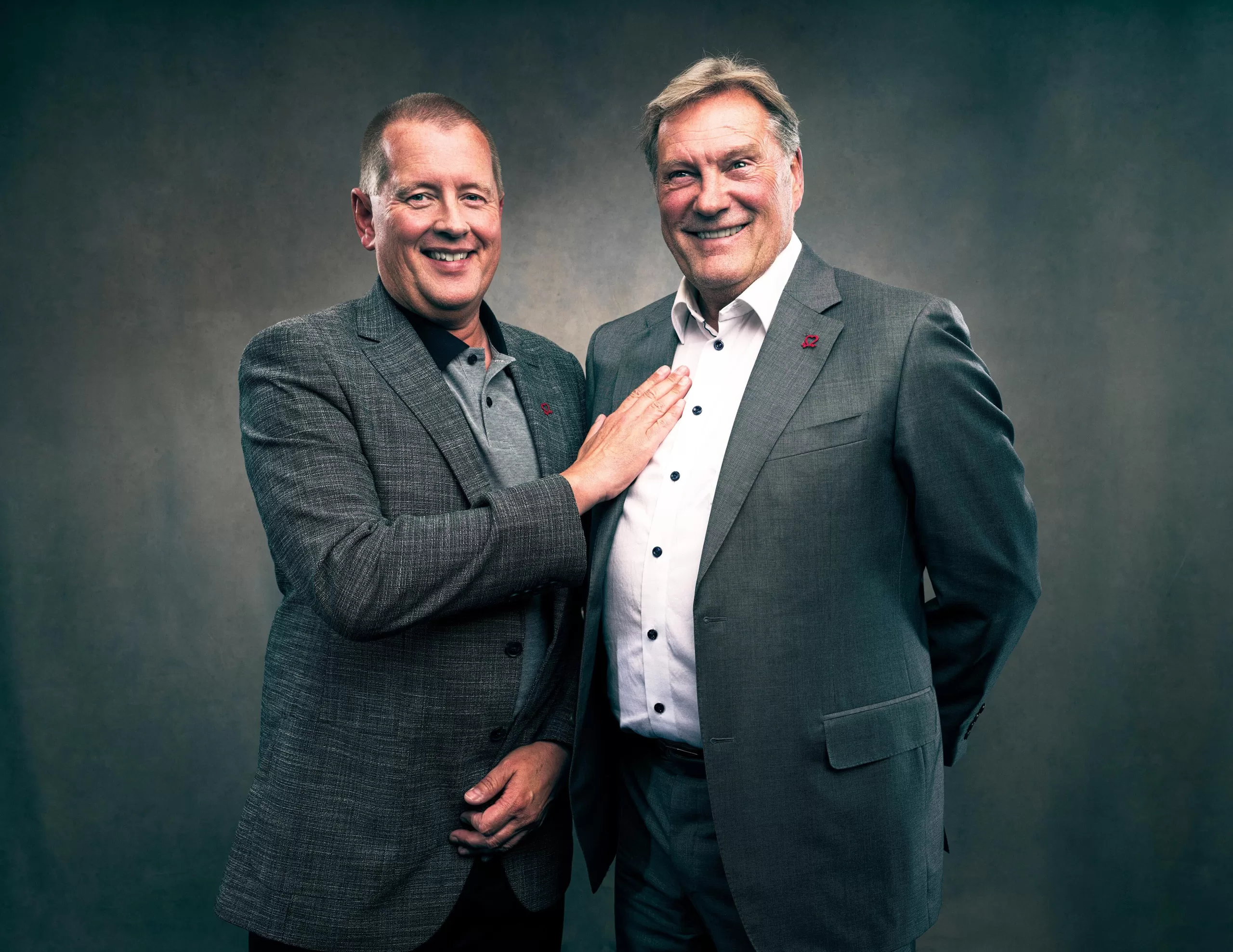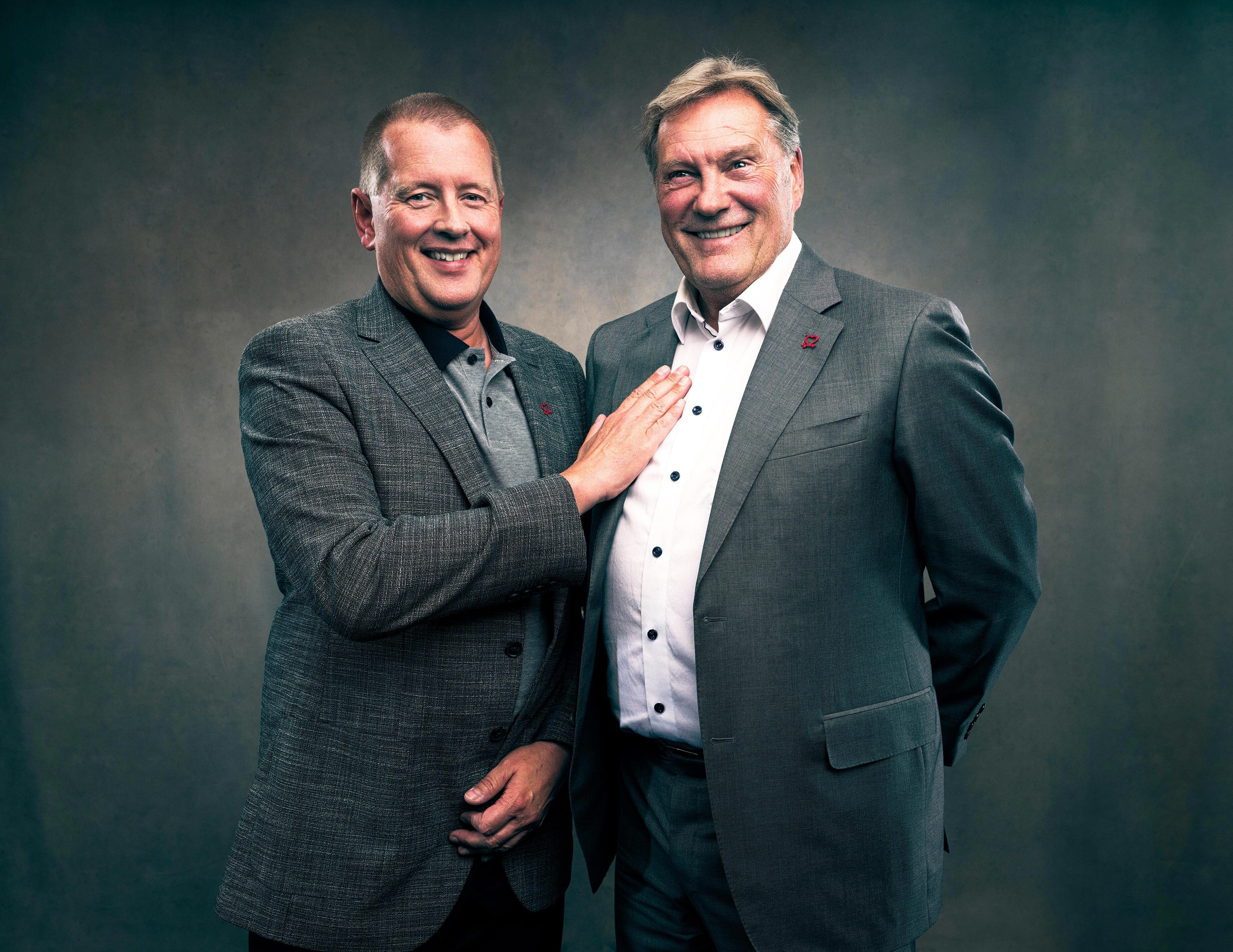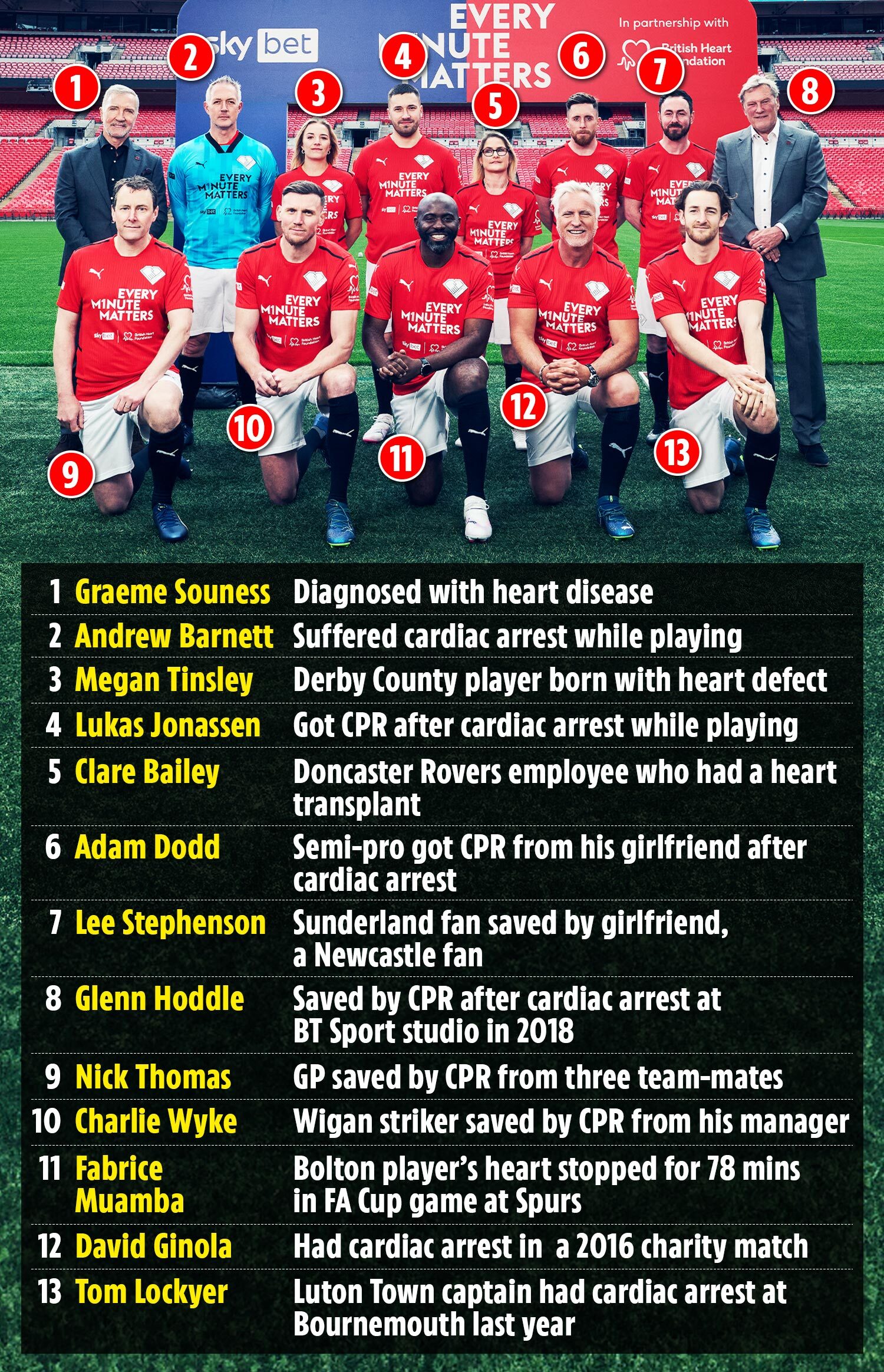The former Spurs star and England manager said quick action gave him the “gift of life” when he collapsed due to a cardiac arrest while filming for BT Sport in 2018.
He became one of the 80 people every day — 30,000 per year — who need resuscitation from CPR (cardiopulmonary resuscitation) outside of hospital in the UK.
This week The Sun joined Glenn, 66, in the stands at Wembley Stadium as he lined up to launch the Every Minute Matters campaign with the British Heart Foundation and Sky Bet’s “Re-starting 11”.
The squad is packed with players who have learned the dangers of heart conditions first-hand, including Fabrice Muamba, David Ginola, Tom Lockyer and Megan Tinsley.
They want 270,000 fans in the next year to learn CPR — enough to pack the stadium three times over.
Saved by CPR-trained pal
Speaking to The Sun, Glenn, said: “You don’t know when a cardiac arrest is going to happen. It could be anywhere — in a football stadium or a shopping mall or on holiday.
“I’m a living example of how we can save people’s lives.”
The player-turned-pundit was rescued by CPR-trained pal Simon Daniels, 53, who was a sound engineer at the time and leapt to Glenn’s aid when he collapsed on the studio floor.
He broke seven of my ribs but the nurse in the hospital said that’s a sign of good CPR.
Glenn added: “It happened on my birthday.
“When I look back I think what a gift Simon gave me. He gave me the gift of life.
“I was lucky he was there.
“He broke seven of my ribs but the nurse in the hospital said that’s a sign of good CPR.
“I learnt CPR very soon after my rehab, which was quite tough.
“All our family did it together — about 15 of us — and that was a good way to learn.”
Lifesaver Simon added: “I knew CPR had to be done quickly because for every minute that you don’t do it, the chance of survival goes down by ten per cent.
“It’s good to see Glenn looking so well, and now he gets to spend time with his grandchildren and his family. We’ll be friends for life.”
The British Heart Foundation’s RevivR web app teaches the basics of CPR in just 15 minutes.
Using just a smartphone and a cushion to practise compressions, the website bhf.org.uk/revivr guides you and checks your technique using your phone’s camera.
It also teaches how to recognise if someone is having a cardiac arrest and how to give them the best chance of survival.
Cardiac arrests happen when the heart suddenly stops pumping blood around the body.
Only one in ten victims survive, yet experts say the rate could improve if more of us knew CPR. The BHF reckons 23million people in the UK have never practised.
Sky Bet has joined forces with the BHF for the campaign and pledged to donate up to £3million to Britain’s biggest heart charity.
It will start with £10,000 for every goal in the EFL playoffs this month.
Football has raised the profile of heart conditions due to a string of high-profile collapses.
Former Bolton Wanderers midfielder Fabrice Muamba received CPR on the pitch after he collapsed during an FA Cup match against Tottenham in 2012, at the age of 23 — and his heart stopped for a staggering 78 minutes.
Luton Town and Wales player Tom Lockyer, 29, had a cardiac arrest on the pitch last December.
Resuscitated on the pitch
They have both joined Glenn for the BHF campaign, along with French star David Ginola, 57, whose heart stopped during a charity match in 2016.
So too has Megan Tinsley, a Derby County defender who plays with a pulse monitor implanted under her skin so doctors can keep tabs on her heart condition.
Man United and Denmark midfielder Christian Eriksen is one of few players to return to top-flight football following a cardiac arrest, after he was resuscitated on the pitch during Euro 2020.
The public can make a big difference, because often the medical teams will not get there in time.
Professor Bryan Williams, chief scientific and medical officer for the BHF, said: “The potential tragedies we’ve seen with elite athletes collapsing really send the message that this could happen to anybody.
“The public can make a big difference, because often the medical teams will not get there in time.”
Megan, 26, had surgery to repair a hole in her heart when she was just five but suffered chest pains in recent years and has had a mini heart attack in her sleep.
Urging fans to master CPR, The Ewe Rams left-back said: “Taking 15 minutes out of your day is not a lot — get a cushion off the sofa and just learn it.”
Fabrice, 36, retired from the professional game after his incident but now lives a normal life.
He said: “I was fortunate that I had the best medical care that day. It’s important not to stand by.
“Get involved and help — you’ll make a massive difference.”
HOW TO DO CPR

If someone is unconscious, not breathing and has a weak or no pulse, call an ambulance and ask a bystander to find a defibrillator then start CPR
1. Lie the person flat on their back on the floor and remove anything from behind their head.
2. Kneel by their side. Put one hand flat in the middle of their chest and the other on top of it, locking your fingers together.
3. Lean over their chest and keep your arms straight to push directly down with your body weight.
4. Push hard on the chest about twice per second (in time to the tune of Stayin’ Alive by the Bee Gees) keeping your arms straight and aiming to squash it by 5cm-6cm each time.
5. Keep going until paramedics arrive.


